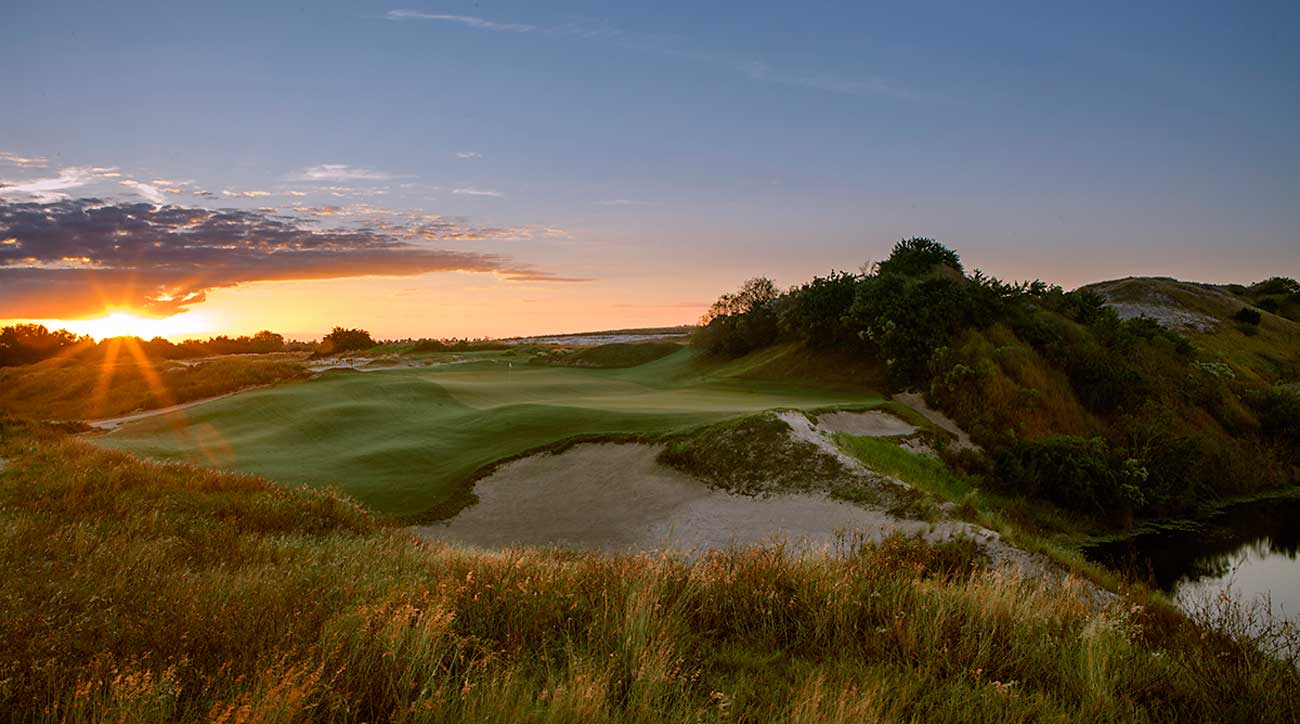 For second straight week, PGA Tour course moves in troubling direction
For second straight week, PGA Tour course moves in troubling direction
8 takeaways from the courses that just *barely* ranked outside our World Top 100
For the first time in the history of GOLF’s rankings of the Top 100 Courses in the World, we’re giving readers a peek at the The Next Fifty (Nos. 101-150) — that is, the 50 courses that most narrowly missed out in cracking our Top 100. We have presented the list in alphabetical order, but I will answer two questions I frequently hear: Which course ranked 101st, and which course ranked 151st? The former is Royal Porthcawl, in Wales, and the latter is Shadow Creek, in Nevada. Here are 8 other takeaways from the courses that just barely missed out.
1. THERE ARE PLENTY OF HIGH POINTS
If you’re a fan of mountain golf, you would do better pegging it in The Next Fifty than in the World Top 100. Among the vertiginous layouts in this group are Banff Springs and Jasper Park, both in the Canadian Rockies, and Wade Hampton, in the Smoky Mountains of North Carolina.
2. IT’S HARD TO CRACK THE TOP 100 (LIKE, REALLY HARD)
Kittansett Club, near Cape Cod, was ranked No. 91 in the world in 1987 and is now in The Next Fifty. The irony is the course is much better today than it was back then, courtesy of a 20-year restoration project by Hanse Design. If Kittansett doesn’t get break back into the Top 100, it is only because of how many world-class courses have been built since 1987 on coastal sites and the slew of top-drawer restoration projects. Bottom line: It is far more difficult to crack into the World Top 100 today than ever before.
3. TWO DESIGN LEGENDS REIGN SUPREME…
Charles Blair Macdonald and Seth Raynor led the way in the World Top 100 with seven original designs and they continue to flex their muscles with four courses in The Next Fifty: Piping Rock, The Creek, Mid Ocean and Yeamans Hall. One of their devotees, William Langford, also has a course (Lawsonia Links), and Old Macdonald, at Bandon Dunes, is in here too, where Tom Doak pays homage to Macdonald’s most famous template holes. Why are there so many courses from the Macdonald school? Because compelling strategy is guaranteed to be baked in through template holes that invariably feature interesting playing angles, well-placed hazards and a diverse set of greens.
Other titans also fared well in The Next Fifty. Coore & Crenshaw have four original designs (Shanqin Bay, Old Sandwich, Streamsong Red, and Sand Valley) in the mix plus one restoration (Old Town, where Perry Maxwell’s 1939 effort brought to conclusion the Golden Age of architecture); Donald Ross is on the board with three (Essex County, Plainfield and Oak Hill, plus an assist to William Watson at White Bear Yacht Club); and there’s three each for Tillinghast (two designs at Baltusrol and another at nearby Ridgewood) and Stanley Thompson (Banff, Jasper Park and Cape Breton Highlands).

ADVERTISEMENT
4. … BUT LESS HERALDED DESIGNERS ALSO SHINE
The Top 100 is loaded with work from brand-name architects. One of the joys of The Next Fifty is that it features lesser-known designers’ work, including the routings at Durban, Moraine, Pikewood National and Wolf Point. These courses can be equally rewarding to play as Top 100 designs, because they evoke a certain freshness.
5. SORRY, ARIZONA!
California has five courses in The Next Fifty, New York and Massachusetts four, while South Carolina and New Jersey have three each. All are big-time golf states, so no surprise there. What is surprising is that golf rich Pennsylvania only has two courses in the world top 150 and Arizona has none.
6. A LIST FOR WALKERS
Courses with modest topography are bountiful from No. 101-150, which proves that a thought-provoking design can trump lack of topography. Examples include Harbour Town, Kittansett, Wolf Point, Yeamans Hall, Tokyo, and Congaree. Such designs are a delight to walk at any age, an underappreciated attribute.
7. … AND CLIMBERS
Conversely, there are also courses with rambunctious, heaving landforms created by glacial regression: Eastward Ho!, Lawsonia Links, Moraine and White Bear Yacht Club. If you like your contours more micro in nature — i.e., delicious, rumpled linksland — head for Royal Aberdeen in Scotland, Royal Cinque Ports in England or Paraparaumu Beach in New Zealand.
8. ATTENTION, BARGAIN SHOPPERS!
World class golf and affordable pricing don’t often go hand in hand, but they do at El Saler in Spain (where green fees start at about $50 for resort guests); Lawsonia Links in Wisconsin (less than $100 in peak season), and Paraparaumu Beach ($70-$170). Don’t miss any of them.
To receive GOLF’s newsletters, subscribe for free here.
ADVERTISEMENT




